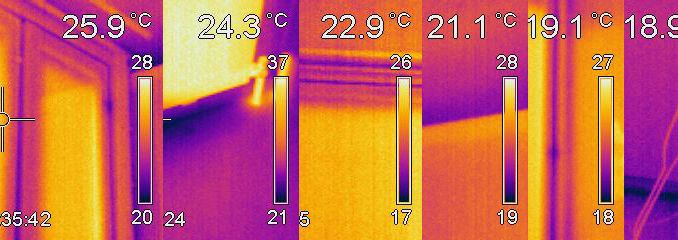
A 40% reduction in residence hall electricity bills
The residence hall on the Salo campus of TUAS brought energy issues to the fore. Its electricity consumption decreased by 40% in just two years. Special attention has also been paid to cleanliness, neighbourliness and a pleasant living environment.
Text: Päivi Savolainen, journalism student
The improvements were prompted by the Well-Being and Energy Efficiency in Living (HEA) project. Located on Hakastarontie in Salo, the residential hall is an exceptional pilot site in the project, which aims to create better living environments particularly for the elderly. Most of its residents are exchange students, constituting a multicultural community.
In Salo, the main goal was to avoid rent increases by reducing electricity and water consumption. Other goals included a reduced need for renovation, a longer useful life for the building and a more pleasant and better-functioning living environment.
“The goal was to interest the residents in their living quality,” says Senior Lecturer Tiina Ferm, who served as the HEA project manager at TUAS.
The residents come from different cultural backgrounds, and their energy consumption habits vary. Students staying for only a few months do not necessarily feel responsible for expenses or cleanliness. Heating and ventilation costs are something new for many foreign students. Some have left a window open for the entire day, even in the winter. Others have used the oven for toasting a single slice of bread or heating the room. In addition, cleanliness issues and nightly noise have caused complaints.
Small acts, big issues
The project is nearing its end. According to Ferm, many improvements have been achieved. Overall, however, the results are not what was expected. Annual electricity consumption decreased by 40% as a result of changes in the operation of the sauna and the drying room. In the apartments, protective film was installed behind radiators and on the windows to reduce heating costs and ensure more even temperatures. Engineering students at TUAS installed digital smart meters in the apartments to monitor energy consumption and temperatures via the Internet.
Laurene Ratajczak, an exchange student from the University of Lille, developed an online information and feedback system for the residents that enables the caretaker to keep up to date with maintenance needs.
“Because of the system, students now know what to do when a bulb needs to be changed outdoors. We have had no bone fractures this year. The system might be a good idea for other rental apartment buildings as well,” says Ferm.
The acquisition of cleaning equipment and darkening roller blinds, as well as home electronics for the shared facilities, improved living quality. The TUAS telecommunications network, SparkNet, was expanded to cover Hakastaronkatu. This makes it easy for exchange students to keep in touch with home and use the network for online learning.
Baby steps
As part of her Bachelor’s thesis, Reetta Partala, International Relations Assistant at TUAS, produced information material for the residence hall to encourage students to consider the environment, energy consumption, their neighbours and future residents. She designed information boards to remind students not to waste water and to close windows and turn off the lights and electrical appliances. Being part of the bigger picture and the chain is a guidebook that encourages students to make environmentally friendly choices, such as saving water and using eco-labelled detergents.
Around 50 students from around the world come to study in Salo annually. According to Partala, if their attitudes towards the environment change during their stay, the change may have a ripple effect in the future. They will spread awareness of the importance of everyday choices in their home country.
The HEA project
• HEA = Hyvinvointia ja energiatehokkuutta asumiseen / Well-Being and Energy Efficiency in Living
• Pilots nursing and residential homes for the elderly as well as various types of residential communities and service units in different regions of Finland.
• Uses digital and technological solutions to improve energy efficiency, well-being, living quality, safety and functionality, based on suggestions from residents.
• Duration: 3.5 years (1 June 2011 to 31 December 2014)
References:
hea.metropolia.fi
Interview, Tiina Ferm, 23 January 2014
Ecoguide to Housing. Bachelor’s thesis. Reetta Partala, Turku University of Applied Sciences, 2013